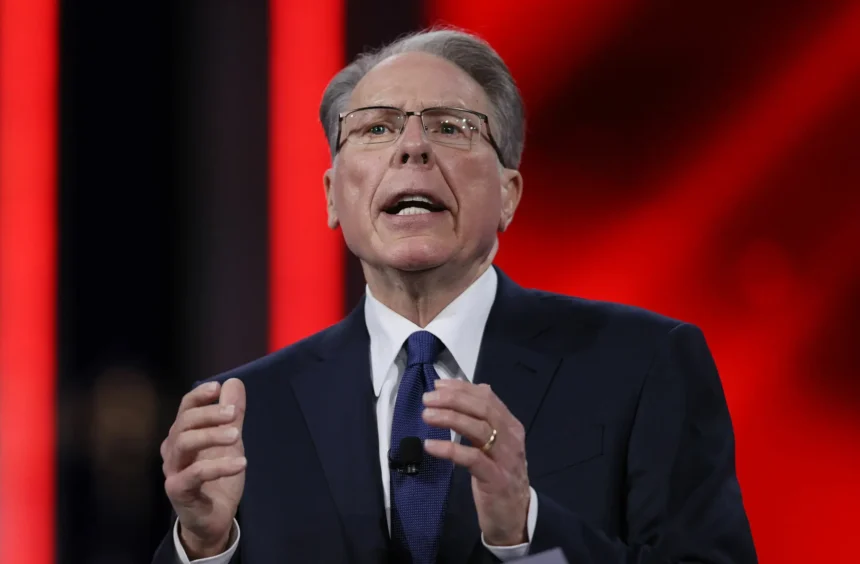Wayne LaPierre Steps Down: Wayne LaPierre, a name that resonated powerfully within the National Rifle Association (NRA) and across the broader spectrum of American gun rights activism, has recently concluded his long-standing tenure as the organization’s executive vice president.
Known for his assertive defense of the Second Amendment and a leadership style that shaped the NRA’s direction for over three decades, LaPierre’s departure comes amidst a storm of legal allegations and a highly anticipated civil trial.
The Resignation
LaPierre’s resignation was announced mere days before the commencement of a civil trial in New York, where he and other current and former NRA leaders are accused of misusing millions of dollars of NRA funds for personal gain. Citing health reasons, LaPierre’s departure marks the end of an influential and controversial chapter in the NRA’s history.
His resignation is seen as a significant moment in the ongoing legal battle against him, with New York Attorney General Letitia James touting it as an acknowledgment of the claims laid against him.
The Allegations
The civil lawsuit, filed by the New York Attorney General, paints LaPierre as a figure of corruption and elitism, alleging that he diverted NRA funds for lavish personal use. This includes private jet trips, expensive meals, and extravagant vacations.
From designer clothes to luxury yachts, the accusations suggest a lifestyle funded by the very organization he led. The lawsuit claims that these actions contributed to the NRA’s loss of over $64 million in just three years, highlighting the gravity of the alleged financial mismanagement.
LaPierre’s Impact and Controversy
LaPierre’s tenure at the NRA was marked not only by his staunch defense of gun rights but also by his divisive rhetoric. He famously countered gun control calls with assertions that “the only thing that stops a bad guy with a gun is a good guy with a gun.”
His leadership saw the NRA’s aggressive stance against any form of gun control, even in the wake of tragic mass shootings. While his supporters saw him as a bulwark against the erosion of Second Amendment rights, his critics viewed him as an obstacle to common-sense gun legislation, accusing him of having blood on his hands due to the gun violence epidemic in the U.S.
The Future of the NRA
The NRA, once an unassailable force in American politics, now faces a precarious future. LaPierre’s resignation does not end the organization’s legal troubles, with the civil trial set to determine the extent of the alleged misconduct.
The outcomes could have far-reaching implications, including potential financial reparations and oversight changes. Beyond the courtroom, the NRA’s public image and influence are at stake, with the gun rights movement watching closely.
Conclusion
Wayne LaPierre’s resignation is more than a leadership change; it’s a moment of reckoning for the NRA and a reflective point for the national conversation on gun rights. As the legal proceedings unfold, the true extent of the allegations against him and their impact on the NRA’s future will become clearer. Regardless of the outcome, LaPierre’s legacy, marked by vehement advocacy and contentious politics, will undoubtedly continue to influence the gun rights debate in America.



